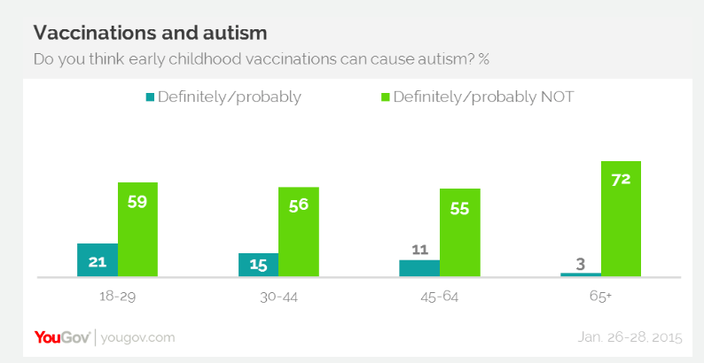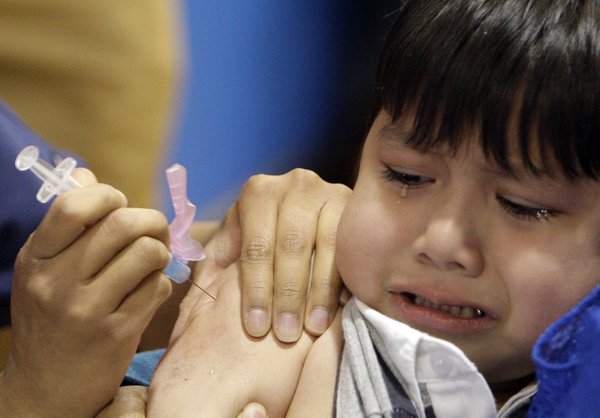According to a new study published by Vox, Americans ages 18 to 29 are more likely to oppose mandatory childhood vaccination and say vaccines can cause autism.
- RELATED ARTICLES:
- U.S. Senator Bob Casey says Pa. can improve on shots
- Measles vaccine becomes topic of latest political debate
- Doctors turn away unvaccinated children
- Philadelphia autism report released
A survey of 1,000 U.S. adults by YouGov,
conducted Jan. 26-28, found 21 percent of young adults
believe the long-debunked idea that vaccines cause autism, while just 13
percent of all U.S. adults agree.

A recent national measles outbreak stemming from Disneyland in California, which affected 95 people across the U.S. and Mexico, has reignited the debate against whether or not children should be vaccinated.
As a result, the American Academy of Pediatrics is urging parents to get their children vaccinated and in Pennsylvania, which has the nation's second-lowest vaccination rate among kindergarteners because of state exceptions, a state Senator is working to change that by eliminating one of the state's three exceptions.
In addition to publishing the study's findings, Vox also published a piece that debunks several anti-vaccines myths, including the claim that vaccines cause autism.
The science on this issue is very clear: vaccines are safe, and they don't cause autism.
The myth stems from a medical journal study published in 1996 by later-discredited researcher Andrew Wakefield, the Vox report said.
It has since been thoroughly debunked: The Lancet retracted the paper, investigators described the research as an "elaborate fraud," and Wakefield lost his medical license.
Still, the damage was done.


